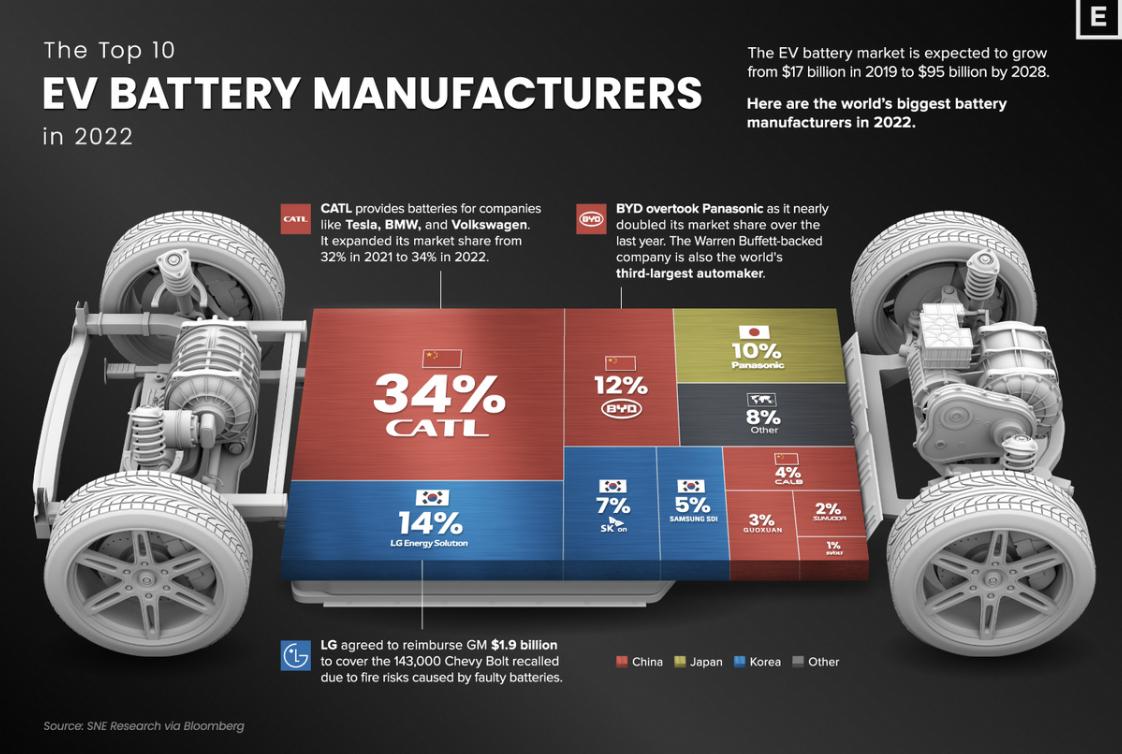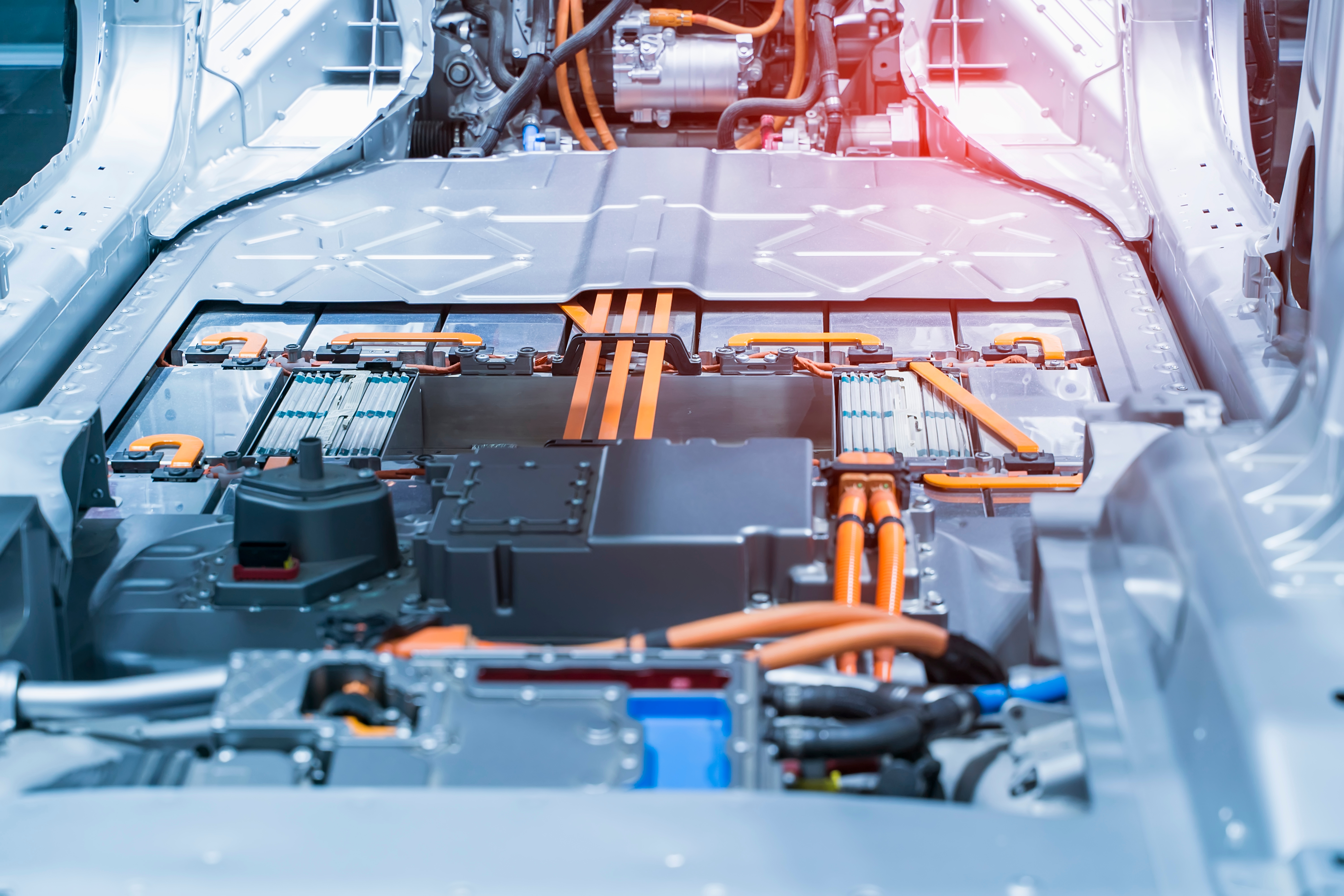Transition to Solid-State Batteries: Challenges and Comparison to Lithium-Ion Batteries
01/22/2024 / by Gail Alfar
Lithium-ion batteries are in most EVs on the road today, including all Tesla vehicles and in EVs built by CATL for Peugeot, Hyundai, BMW, Volkswagen, and Volvo. Lithium-ion batteries have succeeded for several reasons. This article looks at their success and the buzz surrounding solid-state batteries. I hope to analyze the practical challenges and benefits of solid-state batteries compared to Tesla's well-established lithium-ion technology. We’ll start with a general look at Lithium-ion batteries.
Proven technology: Lithium-Ion batteries
One of the main reasons for the widespread adoption of lithium-ion batteries in EVs is their proven track record in terms of reliability and performance along with their ability to deliver high power output and energy density. Lithium-ion batteries store more energy per unit weight than other battery chemistries, which translates to longer driving ranges and better vehicle performance. These batteries also have a relatively low self-discharge rate, according to the Clean Energy Institute of Washington, which means they can retain their charge for extended periods when not in use.

The performance and reliability of lithium-ion batteries in EVs have been demonstrated at scale by Tesla and they are part of the reason for the rapid growth of the electric vehicle market in the USA and worldwide. This growth is a testament to lithium-ion batteries' success as a power source for EVs.

Lithium-Ion Batteries are Cost Effective
The cost of lithium-ion batteries has decreased over the years, making EVs more affordable for consumers. According to BloombergNEF, the average price of lithium-ion battery packs has fallen from $1,160 per kilowatt-hour (kWh) in 2010 to $137 per kWh in 2020. This represents a decline of more than 88% in just a decade, and the cost could drop below $100 per kWh by 2024.
This significant reduction in battery costs can be attributed to advancements in battery technology, economies of scale, and increased competition among battery manufacturers.
Lithium-Ion batteries Have High Energy Density
Energy density is a critical factor when it comes to EVs, as it determines the amount of energy stored in a given battery pack. Lithium-ion batteries have a higher energy density than many other battery chemistries, including solid-state batteries, which allows for more energy storage and longer driving ranges in EVs as well as possible applications in electric aviation, according to research from the Institute of Physics, Chinese Academy of Sciences in Beijing.
Higher energy density means lithium-ion batteries can store more energy per unit volume or weight. This translates to more efficient use of space and weight within the vehicle. This enables longer driving ranges without significantly increasing the battery pack size and weight. This is particularly important for EVs, as range anxiety is still a major concern for some people.
Lithium-Ion batteries Are Fast Charging
DC supercharging stations, which can charge an EV battery up to 80% in about 30 minutes, are common and will increase in number in 2024 when many EVs will use the North American Charging Standard (NACS) to charge at any Tesla Supercharger.
Lithium-ion batteries have fast charging capability due to their ability to accept high charging rates in combination with advanced software without being damaged or losing significant capacity over time. This is one reason I love to take road trips in my Tesla Model Y, as it allows for supercharging in 20 minutes or less so I can get on my way.
Tesla continuously improves the software surrounding their Lithium-Ion batteries, improving their lifespan and reducing and eliminating safety concerns. Tesla does not plan to invest in solid-state battery development at this time. Let’s look at who is investing in this technology.
Future Technology in Development: Solid-State Batteries
Research and advancements are needed to overcome technical challenges and make SSBs a viable, cost-effective solution for EVs and several companies are attempting this. Clean Technica has reported on the progress of solid-state battery development by two manufacturers in the USA: QuantumScape and Factorial Energy.
Solid-state batteries have been touted as the next big breakthrough in battery technology since 2018, when Volkswagen invested $100 million in QuantumScape’s solid-state battery tech. These batteries remain in the early stages of development and currently have a lower energy density than lithium-ion batteries.
https://x.com/PowerPulseNet/status/1011632753110970368?s=20
Factorial Energy is a venture-backed company and is currently hiring battery engineers, according to job postings, it is developing breakthrough solid-state battery technology to enable safe, scalable, and high-performance cells for electric vehicles.
QuantumScape’s mission statement is to transform energy storage with solid-state lithium-metal battery technology and has multiple positions currently open for solid-state battery development and engineering.
Solid-state batteries face three key challenges:
Manufacturing Challenges: Scaling production will take time as SSBs are still under development, potentially slowing down electric vehicle adoption.
Limited Adoption: Solid state batteries are currently absent in commercial electric vehicles, but major players like Toyota and QuantumScape project deployment as late as 2025.
Uncertainty: Future success and adoption are uncertain, given the ongoing development and testing phase, leading to potential delays in commercial deployment.
To overcome these challenges, these companies should address complexities in manufacturing, high production costs, charging rate limitations, temperature sensitivity, cycle life, integration challenges, scaling up production, and establishing regulatory frameworks and safety standards.
My Thoughts
Electric vehicles are the future because our resources for fossil fuels will one day end. Thus, there must be an acceleration to sustainable energy and that means transportation needs to be rethought. Electric vehicles are the leading approach and there is every reason to accelerate this transition at as high a speed as possible. My research has shown that that is happening with Lithium-ion batteries and has not happened thus far at all with SSBs. The path forward for success in EV manufacturing may be to continue improving and refining established lithium-ion technology while approaching SSBs cautiously.
Hopefully, all of the effort and money put into SSBs will lead to eventual success. However, that remains to be seen, and it is imperative to note that electric vehicles' success does not solely depend on battery technology. Charging infrastructure, cost of ownership, and consumer preferences also play significant roles in electric vehicle adoption.
Posted in
Tagged


